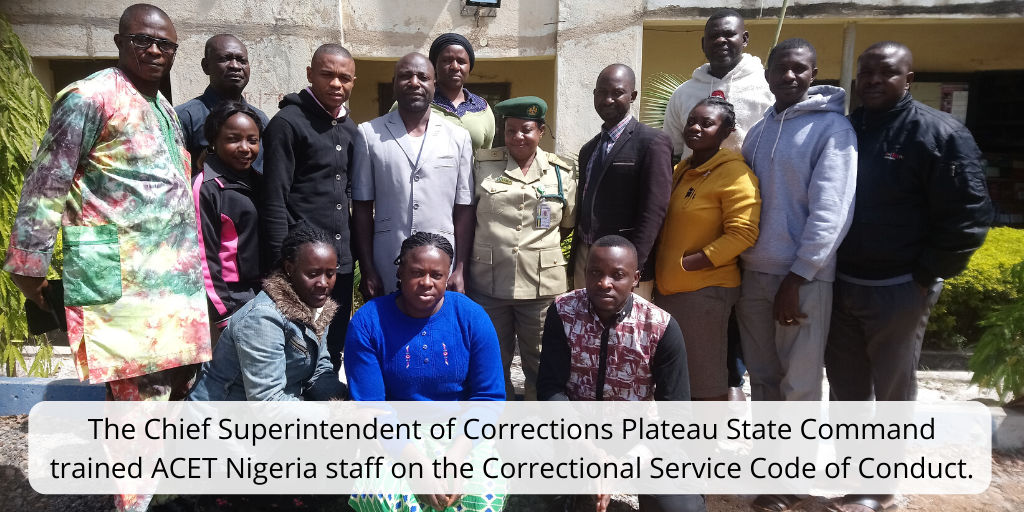ACET Nigeria is currently forming a partnership with the Nigerian Prisons authorities Plateau State Command, to provide their Esteem programme of sexual and reproductive health education for the inmates of Jos prison.
The Nigerian Correctional Service Plateau State Command has seven correctional centres with a total of 1,451 inmates: 924 of whom are housed in the Jos prison.
This new part of ACET Nigeria’s work will provide inmates with HIV testing and links to medication and treatment adherence support services. By providing counselling, as well as livelihood and skills training, ACET Nigeria volunteers will help inmates regain their dignity, develop responsible relationships, and prepare for reintegration into society and life after prison.
As in other parts of the world, sexual abuse is a large problem in Nigerian prisons. Inmates live with the threat of rape, and some female inmates leave prison either pregnant or with a child. ACET Nigeria’s planned Esteem programme aims to reduce these cases, as inmates will be equipped with correct knowledge and skills on sexual and reproductive health.
Similarly, drug use and trafficking is evident within the prisons: a factor that contributes to the high prevalence of mental illness and suicidal tendencies among inmates. The Esteem programme will include education on drug use and its effects on physical and mental health.
Although the prisons are provided with healthcare facilities, these can be inadequate in reaching out to inmates who are living with HIV. This was evident when ACET Nigeria visited in January. An inmate had died of an AIDS-related illness the previous day, and it was suspected that his death was caused by non-adherence to his anti-retroviral medication and poor understanding of his own condition.
The Controller of the Plateau State Correctional Service, said, “Had the Esteem programme kick-started before now, this inmate might still have been alive.”

The programme will also aim to address the stigma and discrimination experienced by inmates when returning to society, by working with their families and communities. If communities are not equipped with the skills needed to support an individual who has been in prison, the individual is left vulnerable and more likely to re-offend. For those living with HIV, the additional stigma associated with this can cause low self-esteem and poor treatment adherence, therefore creating potential poor health outcomes for their sexual partners as well as themselves.
The Controller sees the new partnership with ACET as a timely step, as the Nigerian prison service is currently undergoing reform; moving away from retribution towards rehabilitation. ACET Nigeria are in the process of securing an official permit to work in Jos prison, and the team have attended training on the Nigerian Correctional Service Code of Conduct. We look forward to updating you on how this work takes shape over the next couple of years.
